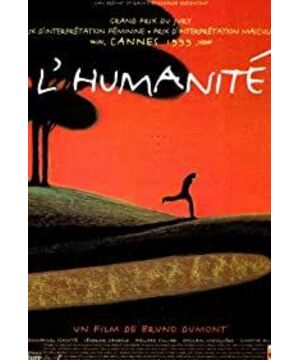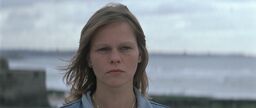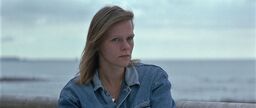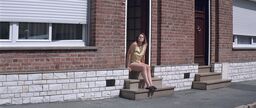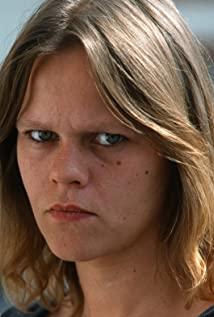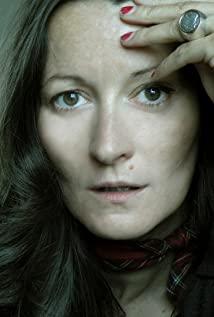The style of Bruno Dumont's films is first and foremost quiet. The kind of quiet that enters the heart. Living up to this quietness is precisely the rich "meaning" of each shot. In the "new film", there is no longer the concept of "size", each shot is important, and the director needs to find the "most suitable" angle, composition, color contrast and the ratio of light to heavy. The "meaning" of the shot is no longer subject to the climax and grandeur of the plot, or even the "primary and secondary" of the characters.
The life of the landscape has the same value as the life of the protagonist. If the artist cannot feel the importance of the breath of the trees, then his attention to the "character" as a "character" will become an inhuman misleading, and the "generally excited" The deliberate depiction of the "climax" and "exciting" plots is even more rough utilitarian.
Therefore, both the "new novel" and Bruno Dumont's "new film" actually regard "meaning" as more important than "meaning"; the latter is outward, producing works according to the needs of readers, so rude and Omissions will be inevitable; the former is aimed at the interior of the work, requiring the artist to carefully study the various world things with the concept of "I am Madame Bovary" (Flaubert).
The rich "meaning" of Bruno Dumont's lens can be seen from his choice of actors. His actors, whether male or female, are not the "handsome" or "beautiful" type, but they don't deliberately seek to be ugly. They seem to be ordinary, but they always have some strange and thick qualities. A face on the screen, the audience will never forget. Because they not only have their faces, but also the "plot" they have to interpret, but also the small habits that each of them should have in their lives, the walking posture that they should have, the natural sluggish expression that they should have, the breathing that they should have. Actions, and all these characteristics are very "natural", coordinated and interesting because they are "should have".
Likewise, Bruno Dumont's shots are beautiful, but not the radiant beauty of Chislowski's. The director does everything he can to eliminate all possible artificial traces, so that people and scenes show their "original" look. "That's what they are." "That's what they are." No exaggeration at all, and no need to avoid it at all. They, the characters, the scenery, replace the director's narration, his voice, with their "being" itself. The director is gone, the god as the work is gone, the "I" that speaks in the work is gone, but the real work has appeared.
2002/7/7
Text: Chen Wei
View more about Humanity reviews


